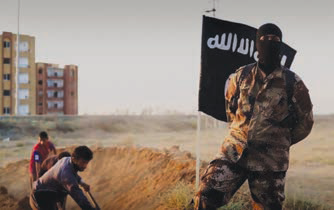
BEIRUT (TIP): Aid deliveries across front lines in war-torn Syria have significantly stepped up, compared to earlier years of the now 6- year-old conflict, the president of the International Committee of the Red Cross said in a statement May 25.
This doesn’t mean suffering is decreasing. With half of the pre-war population of 23 million displaced, the needs of Syrians are a mix of relief aid for survival, but also aid to ensure the ability to sustain themselves and rebuild their lives, said Peter Maurer.
“This is my fifth visit to Syria and each time I come, I see more suffering,” Maurer said. He arrived in Syria on Sunday. “Nearly half of the population has been displaced and all are exhausted by conflict,” he said. “The humanitarian needs are enormous and in parts of the country affected by ongoing fighting these needs are in fact rising sharply.” Maurer said there has been an eightfold increase in 2016 in aid deliveries across conflict lines, a trend that continues this year.
ICRC spokesperson Pawel Krzysiek said the jump from five aid deliveries across conflict lines in 2015 to 56 such operations in 2016 was possible because of continued and improved dialogue with parties to the conflict.
Five months into 2017, 19 such aid deliveries have been made across conflict line. This doesn’t mean that more areas are accessed, but that the operations have increased. As of early 2017, there were 37 areas in Syria that were under complete or partial siege, preventing residents access to regular assistance – if any, according to the Washington-based Siege Watch monitoring group.
Since the beginning of the year, the siege has ended in a handful of areas through capitulation deals between rebel fighters and the government. Thousands of people have been displaced from those areas as part of the agreement, which rights groups call forced displacement.
Maurer visited a couple of those areas during his trip to Syria, where he met residents who expressed concern about restoring education services. He said “short-term relief is not enough.” His organization plans to increase its livelihood programs, including cash grants for small business projects. (AP)





Be the first to comment